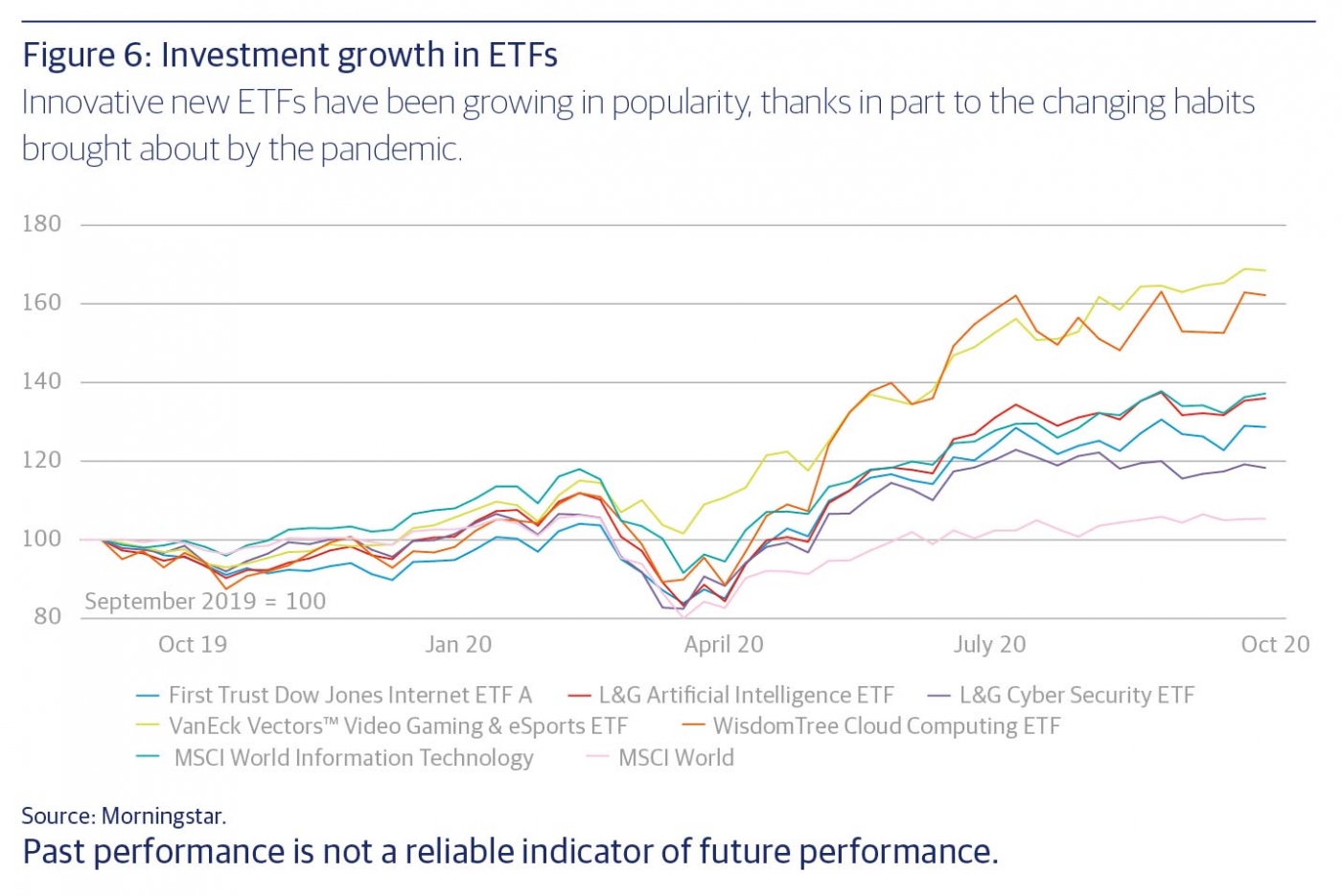Specialist ETFs offer unique opportunities and risks
<p>Some specialist exchange-traded funds (ETFs) are all the rage at the moment, like ‘working from home stocks’ or Biden and Trump baskets, which selected stocks according to whether they were likely to benefit from a victory by the respective candidate. But this approach can go wrong, which is why it’s important to take a close look under the hood before investing in ETFs.</p>

Article last updated 30 September 2025.
Some specialist exchange-traded funds (ETFs) are all the rage at the moment, like ‘working from home stocks’ or Biden and Trump baskets, which selected stocks according to whether they were likely to benefit from a victory by the respective candidate. But this approach can go wrong, which is why it’s important to take a close look under the hood before investing in ETFs.
The humble ETF has come a long way since the first one launched in 1993. The essence of mimicking the investment return of an index is still present, but product engineering and entrepreneurial marketing have propelled ETF providers into innovative areas. Specialist ETFs tapping into global mega trends are growing in number and size, capturing the imagination of investors. These funds adopt passive or rules-based guidelines to invest in equities that provide exposure to these themes.
COVID, ETFs and new ideas
Many of these ideas have profited enormously this year from changing habits brought about by the pandemic — including new technologies and software that helps us work from home and medical innovation as more capital is made available to find a COVID-19 vaccine. ETF providers have been quick to take advantage by launching new funds, giving investors ideas that they may not have thought about before with the aim of generating strong future returns (figure 6).
Investors tend to appraise ETFs based on their ability to mimic an index, as well as cost. Is there anything we can learn by applying these principles to new ideas? In the first instance, what these new ETFs are tracking is not always straightforward. Well-established indices such as the FTSE 100 or S&P 500 are large, transparent and independent from ETF providers, and criteria for inclusion are well understood.
ETF can provide thematic exposures, but beware of hidden risks
In contrast, many newer ideas use proprietary measures for stock selection, which can blend objective and subjective criteria. These can make new ETFs difficult to understand and introduce unintended exposures into an investor’s portfolio. Not all ETFs are the same, but some can be concentrated in fewer names, have exposure to less liquid smaller businesses or hold unprofitable companies. This approach can make the investment more risky.
The subjective element to security allocation is arguably an active decision but can also cloud exposures. Investment themes often comprise different industries, but fund providers might also select companies that benefit from trends rather than drive them. For example, e-commerce companies might feature in robotic and automation ETFs, which could introduce other stocks to the fund that are more sensitive to economic cycles. Some cybersecurity ETFs hold companies that specialise in other areas like defence. So pure-plays on specific themes and trends might not be easy to identify, or indeed gain exposure to without incorporating other, unrelated risks.
How much cheaper are ETFs? Counting all the costs…
ETFs are usually cheaper to invest in than active funds, with the annual fees on many regional passive funds costing just 0.05% to 0.2%. Thematic ETFs can also boast a lower average cost relative to active funds. However, the cost advantages can be eroded by their propensity to invest in harder-to-trade smaller companies and in some cases rules that can generate higher trading costs, such as the requirement to have an equal weight in all holdings. Many of these strategies have performed well over the short term owing to the global health crisis, but it is hard to know whether they have long-term appeal. It can also be tricky for investors to allocate between the different trends and keep track of all the risks.
To get the best fund returns, adjust for risk
The law of averages suggests that if you invest in lots of different ETFs, some will perform well. Active managers can allocate capital in a risk-aware manner that blends the investment thesis of a company and a top-down theme. This approach can help active funds generate better returns when adjusted for risk.
Thematic investing as a long-term investment strategy can be successful, and investors should not discount new ETFs immediately. But it’s important to do your homework so you know what’s on the inside.

This article has been taken from, 'Q4 2020 Investment Insights', read the full publication here.
